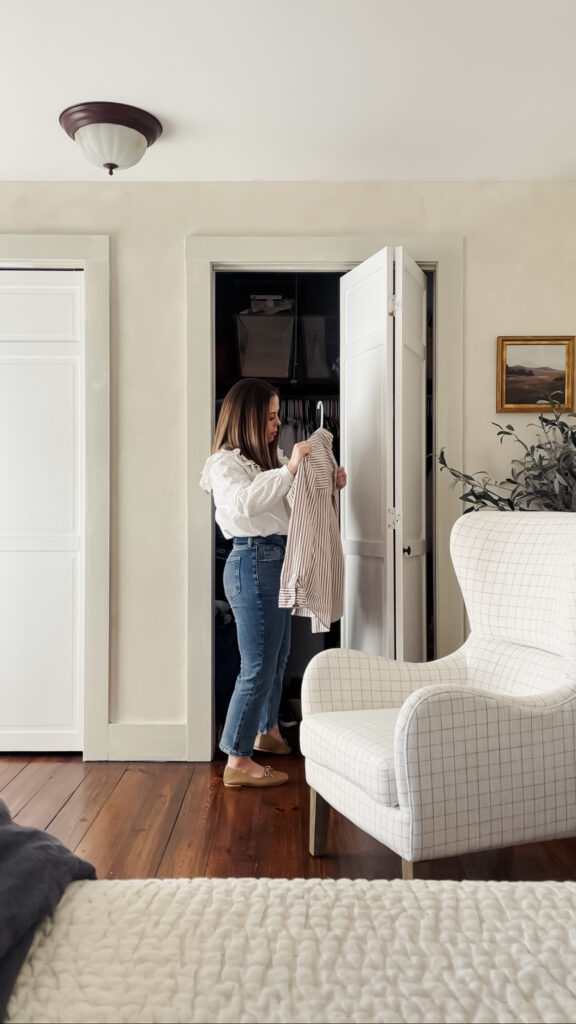
Let’s talk about stress, shall we? Because if there’s one thing I’ve learned as a mother, it’s that stress often sneaks in uninvited, like that unexpected guest who drops by at the least convenient moment.
And I get it. There are lots of reasons to feel stressed when you’re a mom. You’re balancing so many things: managing a household, keeping everyone fed and happy, keeping track of multiple schedules, laundry, bills, etc… I could go on and on. For many years I felt like my brain was a beehive, with a million things buzzing around, trying to juggle and keep track of everything. And all of those things brought me a ton of stress.
And then I got sick. In 2020 I was diagnosed with Graves disease, an autoimmune disease that is exacerbated by stress. My Dr. gave me strict instructions for healing, and one of them was to massively reduce my stress.
“Oh good,” I thought to myself, “I’ve got 4 kids, it’s the middle of a global pandemic, I just got diagnosed with a chronic disease, I’ve had multiple miscarriages in a row, and to top it off, 2 weeks ago my husband lost his job. How in the heck am I supposed to reduce my stress?”
Then I started thinking about all the things I had to deal with/worry about on a daily basis that caused me stress, and which things I actually had control over. It turns out, most of my stress was coming from things that were completely in my sphere of control.
Here’s the thing, many of us moms tend to blame the tasks themselves for our stress. I know I did. Endless laundry piles, the dishes that seem to reproduce overnight, the clutter that comes with kids, juggling multiple schedules, school emails, having to figure out what to make for dinner EVERY SINGLE NIGHT… it all had a compounding effect that sent my stress through the roof. But what I realized when my back was to the wall and I could no longer physically afford to live in a constant state of stress, is that it was not necessarily the tasks themselves that were causing all that stress. It was the lack of a solid system for tackling them.
Yes, you read that right. It’s not the laundry or the dishes or the clutter that’s stressing you out—it’s the absence of an effective system for tackling them. Stay with me on this.
Think about it: when you’re faced with a mountain of chores and no clear plan of attack, it’s easy to feel overwhelmed, isn’t it? But imagine what happens if you have a well-oiled system in place, a roadmap that guides you and your family through each task with ease and efficiency. Suddenly, those mountains start looking a lot more like molehills, and then before long, no hills at all.
So, what exactly do I mean by a system? Think of them as Standard Operating Procedures for you home. A system is a set of organized steps, rhythms, and routines that you and your family map out and then follow consistently to accomplish a task. It’s the difference between randomly tackling chores whenever you have a spare moment and having a structured system for when, where, how and by who each task in your home gets done. And implementing really intentional systems in our home for things like laundry, meal planning, cleaning, closets, and schedules is how I was able to drastically reduce my stress and in turn helped put my autoimmune disease into remission.

Let’s take a look at laundry, for example. I implemented a really effective laundry system that engages my entire family, keeps our laundry room clean and efficient, and has reduced the amount of time I personally spend on laundry to 1 hour a week. I no longer feel stressed about getting laundry done, because we have a really effective system in place. There are never piles of laundry to tackle, so I never have to deal with the mess. I don’t get overwhelmed with how I’m getting it done each week, because it’s already scheduled out. I don’t have to think about it at all in fact, and when it comes time to do it, it’s quick and efficient. So while laundry used to be a major pain/stress in my life, I no longer have any stress around the task at all. That’s the magic of effective systems.
Ready to create a laundry system that works for your family? Grab my guide here.
The same goes for meal planning, cleaning, and just about every other aspect of homemaking. By breaking tasks down into manageable chunks and establishing routines for tackling them, you’ll not only reduce your stress levels but also free up more time for the fun parts of homemaking—the things that actually bring you joy.

Of course, every family is different, so there’s no one-size-fits-all system. Creating a system that works for your family is all about getting intentional and tailoring an effective approach to these tasks in a way that engages and benefits your whole family. The key is to experiment until you find a system that feels natural and sustainable for you.
Read: 10 simple tips for keeping your home clean and tidy.
So, the next time you find yourself feeling overwhelmed by the never-ending cycle of chores, remember this: it’s not the tasks themselves that are stressing you out—it’s the lack of a solid system. Take a deep breath, roll up your sleeves, and start building those systems one step at a time. Your home and you future stress-free self will thank you for it.
Ready to start creating effective systems for your home? My guides make the process quick and effective!
Meal Planning Guide: Learn how to meal plan so your family dinners are easy and stress-free.
Simplified Laundry Guide: A Comprehensive Guide to Creating an Effective Family Laundry System.
Simplified Closet Guide: Step-by-step guide to cleaning out and organizing your closet and building an intentional wardrobe.

So so true. Thank you for this!